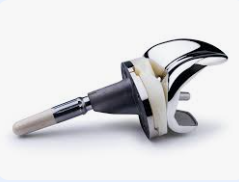Chronic knee pain due to arthritis, injury, or degeneration robs millions worldwide of their independence. According to global data, over 1.3 million knee replacement surgeries are performed annually, steadily increasing as populations age, and the demand for better mobility grows.
Dr. Sandeep Singh, a renowned Orthopedic Doctor in Bhubaneswar, explains:
“Advancements in knee replacement technology aren’t just improving surgery outcomes; they’re helping patients reclaim their lives faster and with less discomfort. Our goal today is not just to fix a knee but to provide patients with a solution that enhances their overall quality of life.”
Is knee pain limiting your day-to-day activities? Consult a trusted orthopedic specialist who can guide you toward the right solution.
Let’s look at the scenarios that make knee replacement the best option for restoring mobility and reducing pain.
Understanding the Need for Knee Replacement

Here are some common reasons and scenarios for knee replacement surgery:
Severe Osteoarthritis: When the cartilage in the knee joint wears down, causing intense pain, stiffness, and limited mobility.
Rheumatoid Arthritis: Chronic inflammation that damages the knee joint, leading to pain and deformity.
Traumatic Knee Injury: Major injury or fractures that damage the knee joint beyond repair.
Post-Traumatic Arthritis: Degeneration of the knee joint after an injury, causing ongoing pain and instability.
Chronic Knee Pain: Persistent pain that affects daily activities that is not relieved by non-surgical treatments like physical therapy or medications.
Deformity of the Knee: Significant bowing or knock-knee alignment that creates mobility challenges or discomfort.
Failed Previous Knee Surgery: A prior knee replacement or surgery that has worn out or become ineffective.
Reduced Quality of Life: When knee pain severely limits the patient’s ability to perform daily tasks, even with conservative treatments.
The Latest Knee Replacement Innovations
Integrating artificial intelligence (AI) and robotics into surgical procedures is one of the most exciting advancements. Furthermore, innovations such as minimally invasive techniques and smart implant technology are transforming how surgeons perform knee replacements.
1. AI and robotic-assisted surgeries

AI and Robotic-Assisted Knee Replacement offer a high degree of personalization and accuracy. Robotics assists the surgeon by providing detailed 3D models of the patient’s knee. This allows them to make highly accurate incisions and precisely place the knee implant.
Dr. Sandeep Singh, an accomplished Orthopedic Doctor in Bhubaneswar, explains:
“AI algorithms analyze patient-specific data, helping surgeons to anticipate potential issues and make adjustments during surgery. This leads to better long-term results, less pain, and shorter recovery times. The combination of AI and robotics reduces the margin of error and improves patient outcomes.”
2. Persona IQ®: The Smart Knee Replacement Technology

Dr. Sandeep Singh, known for safe and effective Knee Replacement in Bhubaneswar, adds:
“The technology collects information such as range of motion, steps taken, and other critical metrics. This data can help tailor rehabilitation programs, ensuring the patient recovers faster and more completely. Persona IQ® is particularly beneficial for patients who want to stay proactive about their health after surgery, as it offers insights into how well the implant functions over time.”
Are you or a loved one facing knee replacement surgery? Reach out to an experienced orthopedic surgeon to explore cutting-edge innovations like AI-assisted surgeries and smart implants.
Key Benefits of New Knee Replacement Options
Some of the most notable benefits include:
Faster recovery: New techniques and technologies help patients recover more quickly than traditional methods.
Real-Time Monitoring: With technologies like Persona IQ®, patients and doctors can monitor the functionality of the knee implant, making it easier to address issues before they become problematic.
Greater precision: AI and robotic systems ensure that implants are placed with extreme accuracy, reducing the risk of complications.
Improved mobility: Patients experience better joint function and increased mobility post-surgery.
Reduced pain and trauma: Minimally invasive techniques minimize damage to surrounding tissues, leading to less post-operative pain.
Longer-lasting results: Enhanced precision in implant placement means better long-term outcomes and fewer revision surgeries.
These advancements are empowering patients to regain their mobility and return to their active lifestyles with greater confidence.
Conclusion
The newest knee replacement options, from AI-assisted surgeries to smart implants like Persona IQ®, are transforming how patients experience knee replacement surgeries. As advancements continue, knee replacement surgeries are becoming less invasive, with greater benefits for patients in both the short and long term.
Dr. Sandeep Singh, a distinguished Orthopedic Doctor in Bhubaneswar, summarizes:
“The latest knee replacement technologies represent a significant leap in patient care. With these innovations, we are seeing faster recovery, greater precision, and a better overall patient experience. It’s a game-changer,”
Are you struggling with chronic knee pain? Consult an experienced orthopedic surgeon who understands these advanced technologies. They can help you determine the best path forward and give you the relief you need to return to a pain-free life.
FAQs
What type of knee replacement is most successful?
The most successful knee replacement type depends on the patient’s condition, but total knee replacement (TKR) remains highly effective for those with severe arthritis or injury. With the integration of AI and robotic-assisted surgeries, total knee replacements now offer even better alignment and long-term success rates.
What is the best age to have a knee replacement?
There is no fixed “best age” for knee replacement, but many patients undergo the procedure between the ages of 50 and 70. Younger patients may also benefit, especially with advancements like minimally invasive and AI-assisted techniques, which can prolong the implant’s life and improve outcomes.
Can knee replacement surgery be customized to individual patients?
Yes, recent innovations such as 3D modeling and AI-driven data allow knee replacement surgeries to be highly personalized. Surgeons can now tailor the size, positioning, and type of the implant based on a patient’s unique anatomy, ensuring better comfort and long-term success.
How do newer materials used in knee implants improve outcomes?
Newer materials like advanced polyethylene and ceramics are more durable and biocompatible, reducing wear and extending the lifespan of knee implants. These materials mimic the joint’s natural movement, leading to fewer complications and improved patient satisfaction over time.
What role does computer navigation play in modern knee replacement surgeries?
Computer navigation in knee replacement provides real-time data during the surgery, ensuring that the implant is placed with the highest accuracy. This technology helps improve alignment and reduce errors, resulting in better post-surgical outcomes and longer-lasting implants.
Do newer knee replacement options last longer than traditional ones?
Yes, newer knee replacement options, especially those utilizing advanced materials and robotic assistance, tend to last longer. These innovations minimize wear and tear, improve joint alignment, and provide a lifespan of 20 years or more, compared to traditional replacements that may need revision after 15-20 years.
Disclaimer: The information shared in this content is for educational purposes only and not for promotional use.

